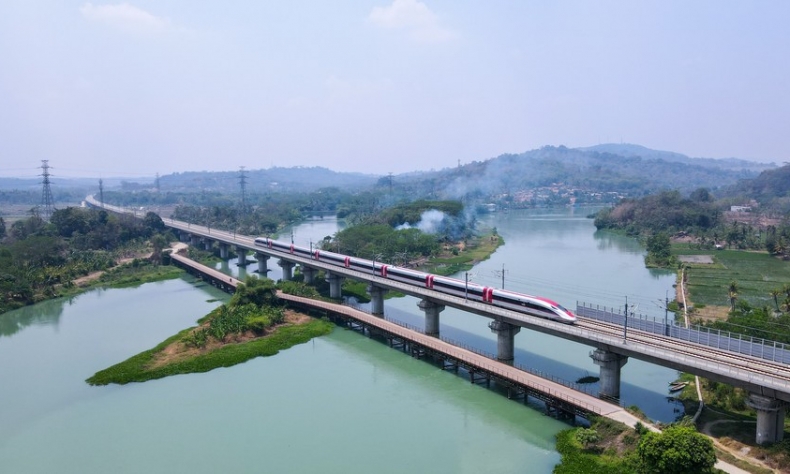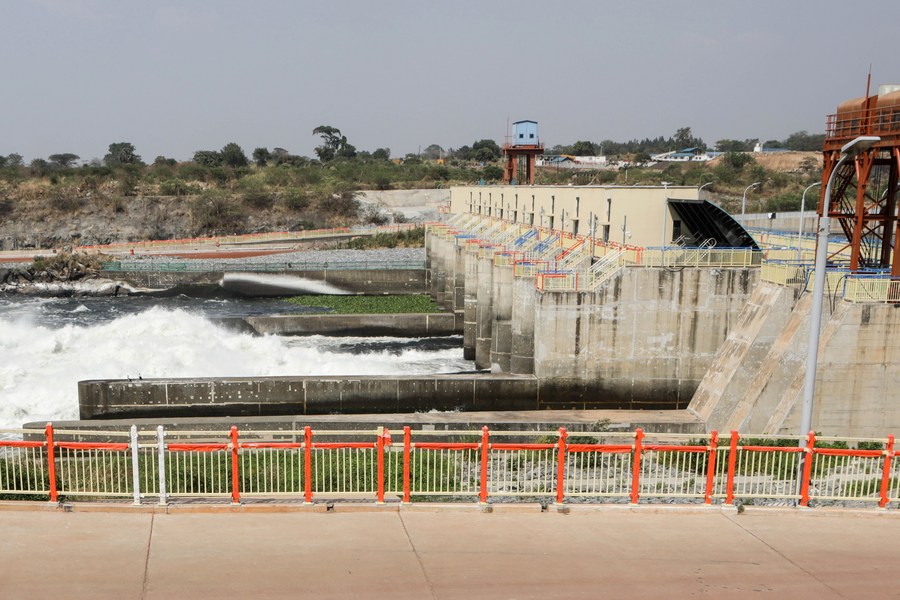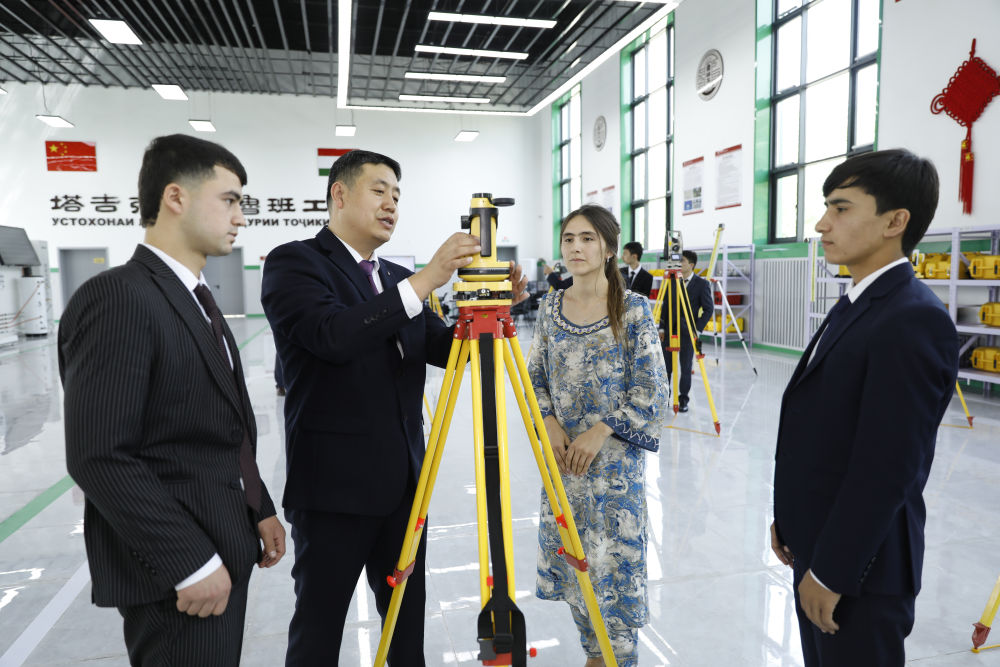Global Initiatives Proposed by China Are Timely and Should Be Treated Seriously: UN Official

It’s high time that we talk to each other, find peaceful ways of resolving conflicts and disputes, and create a system that is mutually beneficial to all human beings around the world.
Editor’s Note: Amid the dynamic transformations unfolding in the global arena, China has proposed three landmark global initiatives, known as the Global Development Initiative (GDI), Global Security Initiative (GSI), and Global Civilization Initiative (GCI). Youness Abouyoub, Chief of Governance and State-Building Section at the United Nations Economic and Social Commission for Western Asia (UN-ESCWA), shared his insights into the significance and potential impact of these initiatives in an interview with China Focus. The excerpts of the interview are as follows.
China Focus: The GSI stresses that every country, big or small, has the right to independently choose its own social system and developmental path. What are your thoughts on this principle, and how, if at all, does this impact countries in Africa and the developing world?
Youness Abouyoub: I believe that the initiative proposed by President Xi Jinping is timely. This should have happened a while ago.
We all know that most of African countries gained their independence in the 1960s, and they’ve been trying to chart the path to development by their own means and in their own ways. But, they were caught during that period in the Cold War between two different systems, two big blocs that they were fighting, East and West.
After the 1990s, with the demise of the Soviet bloc, there was one particular model that was basically the mainstream narrative in terms of development for the whole world, based on Bretton Woods Institutions, IMF, World Bank, and the Washington Consensus.
That turns to be, after 2000, more into neoliberal policies that made the State’s role in creating development for their citizens less and less important, and private markets have taken [on] basically the role of the State. This has led to many crises in many countries in the world and mostly in Africa, which still need a strong state and strong public sector that provides public services that are essential for development.
So, I think it is time that we take this initiative seriously and allow more space for these countries to chart their own way toward development. There’s no one-size-fits-all in terms of sustainable development.

China Focus: How do you view the Belt and Road Initiative (BRI) and its impact on partner countries in Africa and the Middle East? What do you think the BRI could look like in the future?
Youness Abouyoub: Of course, it depends on each state to evaluate and assess what they believe, in terms of the benefits, they gain from these initiatives. But, from what I have seen, working around the globe and dealing with issues of governance and sustainable development, I think this has been welcomed by many countries in Africa.
We see an increase in exchange and partnership between China and many African countries and also Arab countries, which signals that there is a mutual benefit from this increasing exchange.
The BRI would probably, in the future, develop even further. The BRI will be what the partners would like it to be, because, at the end of the day, these countries are sovereign states. They have tried different paths of development. The mainstream narrative, the one-size-fit-all model that was imposed post-independence on many countries has failed. It has not created the development that most of these countries wanted.
Now it’s only normal that they’ve turned towards other partners, and China has provided new partnerships based on mutual benefit and mutual positive development for both [sides]. It has been shown by experience that it’s working. I believe the future will tell us that this initiative will probably grow even further if most of these countries see that it’s in their benefit to continue it.
China Focus: Which fields can China and other developing countries more closely cooperate?
Youness Abouyoub: Besides trade and commerce which are important, there is technology and the transfer of technology which has been a major problem for most developing countries. They asked most of developed countries to provide them with technology transfer, but it has always been denied. Most of these developed countries have seen the countries of the Global South as mainly markets for their goods or as a cheap labor or cheap natural resource provision. Now it’s probably time that China, which is one of the big technological producers, to provide technology transfer for these countries so they can develop their own means. This is one thing.
There is another field where I can see more chances or possibilities; it’s in terms of governance and institutional building. China has basically created huge development in terms of lifting [almost] a billion people out of poverty through an effective system of governance, through public service, and through strong and effective institutions. This is lacking in most of these developing countries.
The third one is in terms of fighting climate change and renewable energy. And, last but not least, today there is a global shift in global governance and international order. Many countries want to create a more multilateral system, and a global order based on more fairness, equity, and representation. There is a way to develop that, and it’s part of the SDG’s (Sustainable Development Goals), which promote ways of having more developing countries have stronger votes and stronger representations in international organizations. China and developing countries can work together to create a more equal and multilateral system.

China Focus: The GDI advocates a people-centered approach toward development. What are your views on the GDI and other initiatives proposed by China, namely the GSI and the GCI?
Youness Abouyoub: I completely agree with President Xi. Modernization or the issue of development and economic growth should put people at the center. The economy should work for people, not people working for the economy. We’re not looking for economic growth for the sake of economic growth. We’re doing economic growth to create human development, to provide for a more decent living for all people.
It’s high time that we end hunger in the world, we end poverty, and it is possible. China proved that it’s possible by lifting almost one billion people out of extreme poverty. It’s an issue that we still see in many developing countries and if we could work together with China, with other countries, other members of the international community to create something better to serve humanity, that could be an excellent way of partnering.
It’s high time that we have people think this way and believe in equality among all humans. Now that we are faced with many dangers around the globe, it’s high time that we talk to each other, find peaceful ways of resolving conflicts and disputes, and create a system that is mutually beneficial to all human beings around the world.
It’s not an issue of race, ethnicity or religion. It’s about the brotherhood of man all over the world. The three initiatives are timely and it’s high time that the world looks at these initiatives and treats them seriously, and we sit and work together to create this new world.
China Focus: How would you like to see international relations progress over the next decade?
Youness Abouyoub: I see a world based on solidarity, not a world based on competition, because competition has led the world into major conflicts and major problems, whether these are global conflicts or small-scale conflicts that we see in the Global South.
We have to rethink the global system and create new institutions that are stronger, more equal and fairer in the distribution of power. The General Assembly should be strengthened because it is the most representative body in the UN. But, beyond the institution itself, I think it is time now that we create a world that is based on solidarity between all members of the international community, especially when we are all facing a major threat — climate change. If we don’t work together to resolve this problem, the whole of humanity will be in major danger.
The main problem is the way human beings act and think. Throughout human history, we’ve been trying to create a world that is based on rights. Unfortunately, so far, we have been living in a world that is based on power. So, the best thing we could do is to find the mechanisms and the international consensus to create a system that is rights-based, not a system that is power-based.
 Facebook
Facebook
 Twitter
Twitter
 Linkedin
Linkedin
 Google +
Google +











